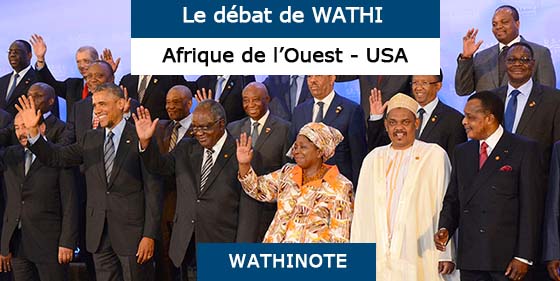

Author: Howard W. French
Site of publication: World Politics Review
Type of publication: Article
Date of publication: January 2nd, 2020
Since the end of the Cold War, American relations with Africa have been characterized by a single, powerful trend: disengagement. Its direction has been so constant that it is tempting to think of it as a fixed given, but that would be a mistake. In reality, over the past three decades, this troubling trend has only accelerated.
As the civilian bureaucracies that are supposed to lead American foreign policy have steadily disengaged from Africa, they have been eclipsed by the Pentagon. Of course, every few years Washington still rolls out a tepid rebranding of its low-wattage trade and investment policies toward the African continent. The Trump administration’s version is something called “Prosper Africa.” But when it was unveiled at a summit in Mozambique last June, the truest reflection of prevailing American attitudes toward the continent came from the fact that Washington couldn’t even muster a Cabinet secretary to attend the event.
Going back to the continent’s independence era in the late-1950s, the U.S. has never accorded Africa such consistent high-level attention. But since Washington’s civilian disengagement began after the Cold War, Africa has been treated more and more like an essentially military and security problem to be managed strictly at arm’s length
It is important to stress that this is not a problem unique to Trump administration dysfunction. According to the traditional rules of diplomacy, a country shows its commitment to foreign partners by servicing the relationship. When a relationship is healthy and constructive, this means frequent, high-level contacts. China has made a priority of its relations with the African continent in this century. It is not just a matter of fast growth in trade and investment, but can be readily seen in the way Beijing has serviced its African relationships. China’s premier and the head of the Chinese Communist Party—the country’s top two leaders—have each visited Africa almost annually for years now, as do numerous other Cabinet-level and other senior Chinese delegations.
Going back to the continent’s independence era in the late-1950s, the U.S. has never accorded Africa such consistent high-level attention. But since Washington’s civilian disengagement began after the Cold War, Africa has been treated more and more like an essentially military and security problem to be managed strictly at arm’s length. What that has come to mean in practice is that U.S. engagement with Africa has gradually come to be led by the American military’s Africa Command, based not in Africa at all, but in Stuttgart, Germany.
According to a New York Times report just before Christmas, Washington is moving toward a major reduction of its military engagement across the continent, and could go so far as a near-complete pullout of the 6,000 or so troops there, most of them in the Sahel region and the Horn of Africa. A set of relationships dominated by military interests and perspectives was bad enough. With that suddenly called into question, though, the risk is that Washington’s even further downsized relationship with Africa will then go totally adrift.
Washington should be beating the drum about business opportunities in a fast-urbanizing Africa. These exist in insurance, finance and other services in which American companies excel, as well as in transportation, construction and non-fossil fuel energy sources—oil being the traditional U.S. focus. Education is one of the continent’s biggest challenges, and it is also a core American strength, and it is therefore an area in which the United States should be engaging the continent much more deeply. What is lacking is the imagination, the energy and the will.
The military-first American approach to Africa will accomplish none of this, but abruptly pulling American forces out of the continent is nonetheless harmfully shortsighted. The Sahel region, a broad band of countries just south of the Sahara desert, is now spinning toward collective state failure under the pressure of Islamist militancy and poor governance. “Jihadist groups in the region are enjoying largely unfettered freedom of movement and can, in part thanks to the local population, act as they wish,” according to a recently leaked classified German Defense Ministry document. That leak came against the backdrop of a French request for German assistance in combating insurgencies in West Africa, which was reportedly declined by Berlin, leaving France, with its own security-first engagement with the region, in an increasingly tenuous position.
American and other diplomats should be meeting constantly with members of civil society from these countries to hear their own independent assessments, and to sound them out for new, possibly better ideas. What is the percentage of girls in school this year? How fast is literacy rising? How are you bringing about greater transparency? How quickly is access spreading to electricity and to the internet? And what have you done recently to step up regional integration?
Les Wathinotes sont soit des résumés de publications sélectionnées par WATHI, conformes aux résumés originaux, soit des versions modifiées des résumés originaux, soit des extraits choisis par WATHI compte tenu de leur pertinence par rapport au thème du Débat. Lorsque les publications et leurs résumés ne sont disponibles qu’en français ou en anglais, WATHI se charge de la traduction des extraits choisis dans l’autre langue. Toutes les Wathinotes renvoient aux publications originales et intégrales qui ne sont pas hébergées par le site de WATHI, et sont destinées à promouvoir la lecture de ces documents, fruit du travail de recherche d’universitaires et d’experts.
The Wathinotes are either original abstracts of publications selected by WATHI, modified original summaries or publication quotes selected for their relevance for the theme of the Debate. When publications and abstracts are only available either in French or in English, the translation is done by WATHI. All the Wathinotes link to the original and integral publications that are not hosted on the WATHI website. WATHI participates to the promotion of these documents that have been written by university professors and experts.
